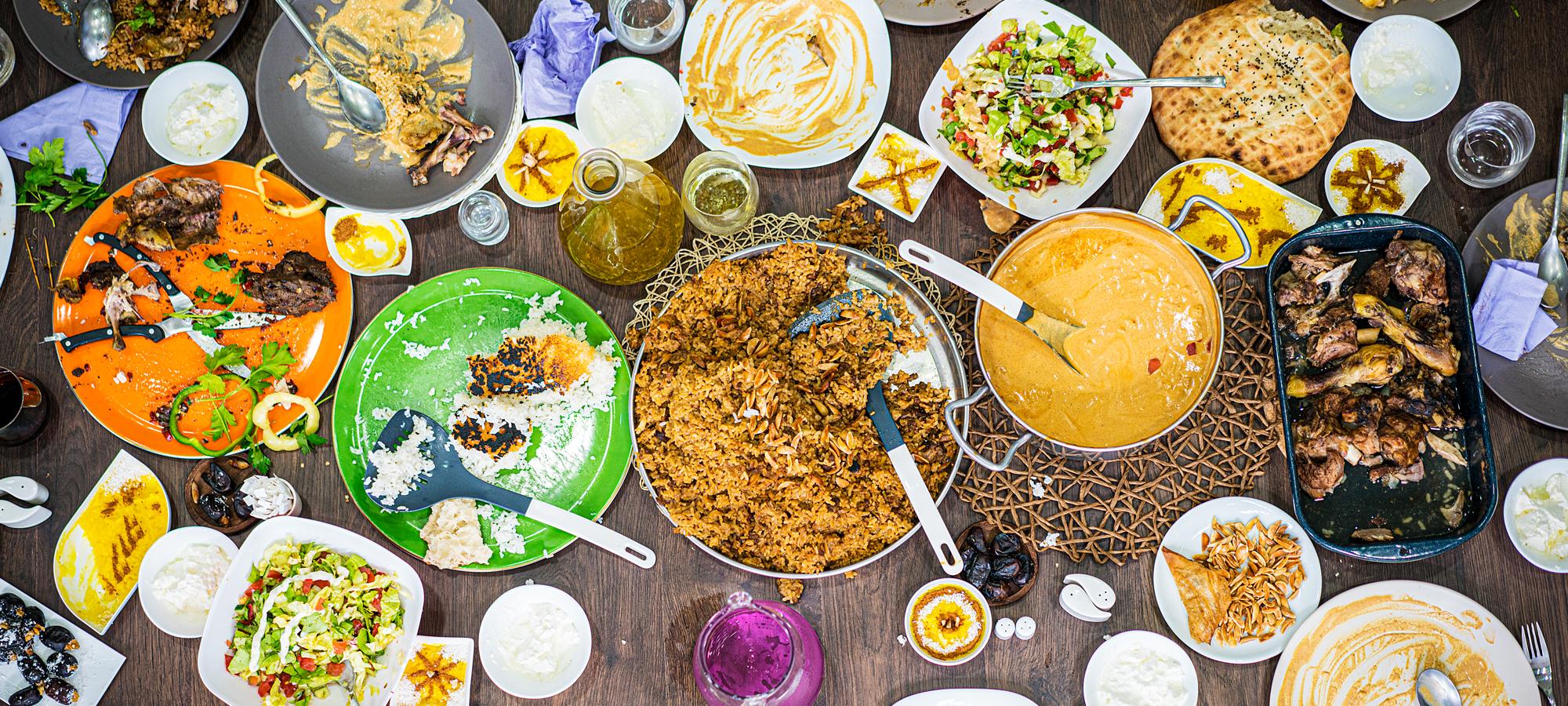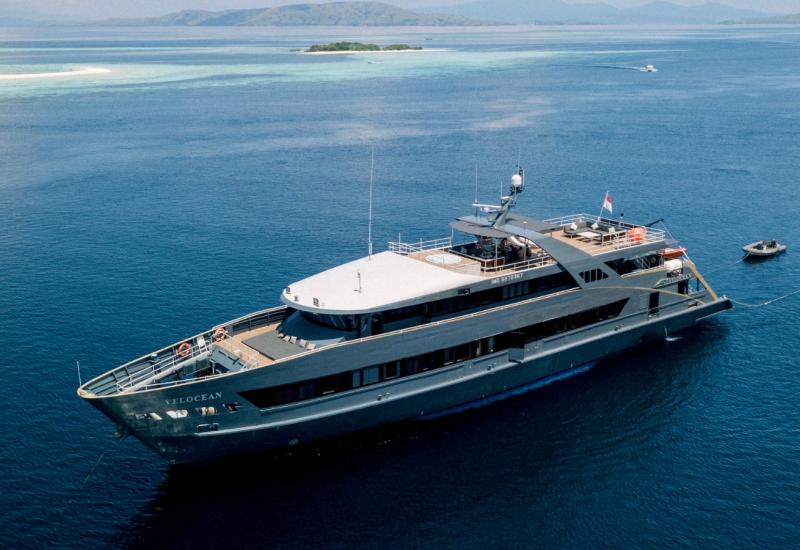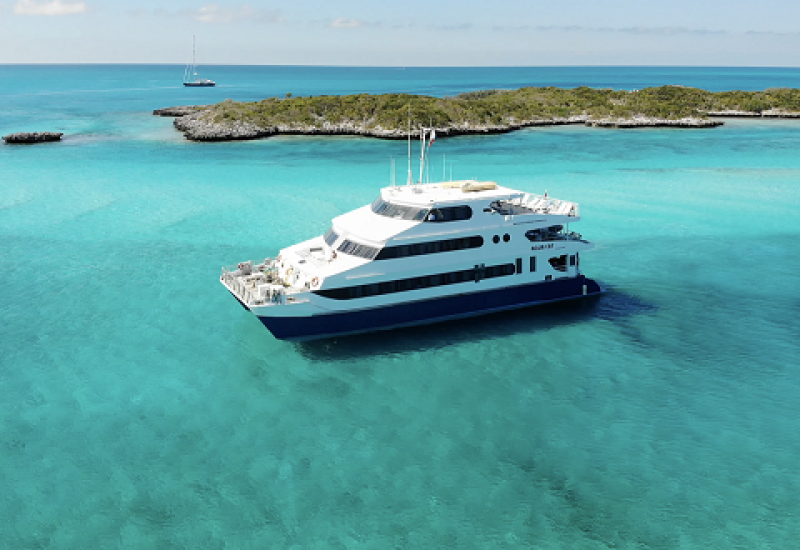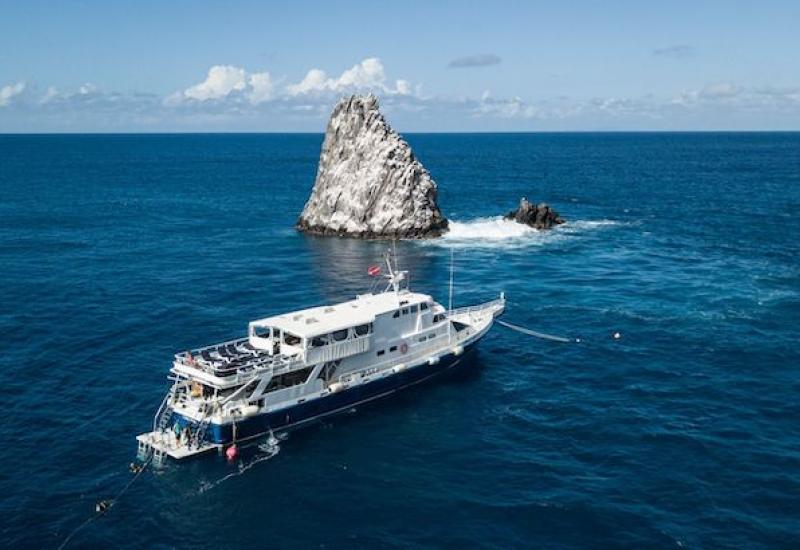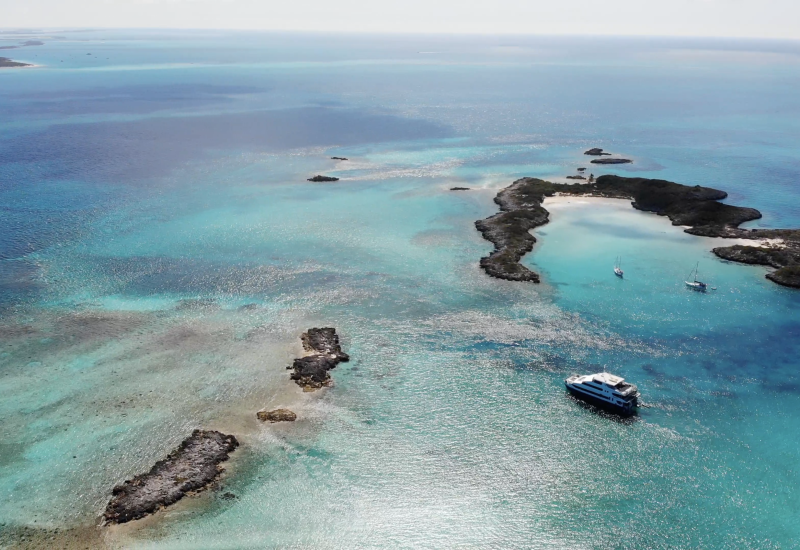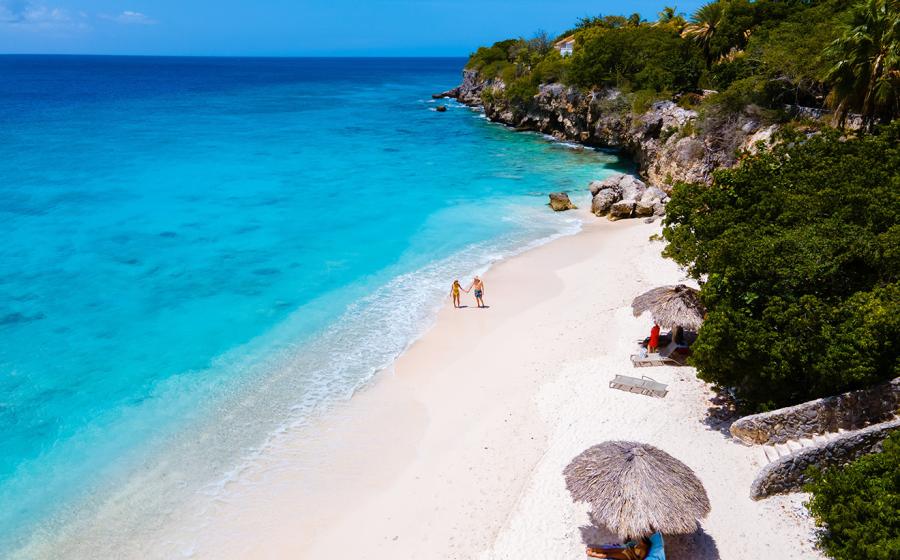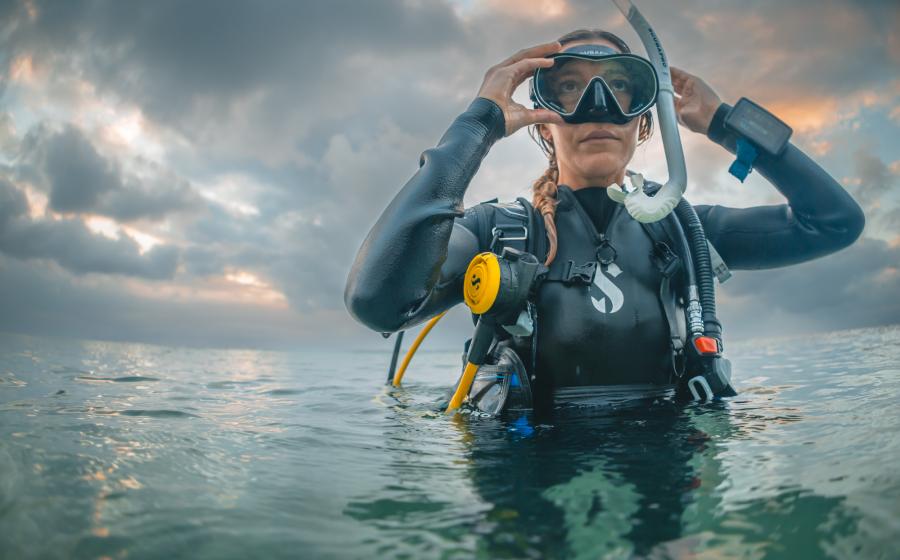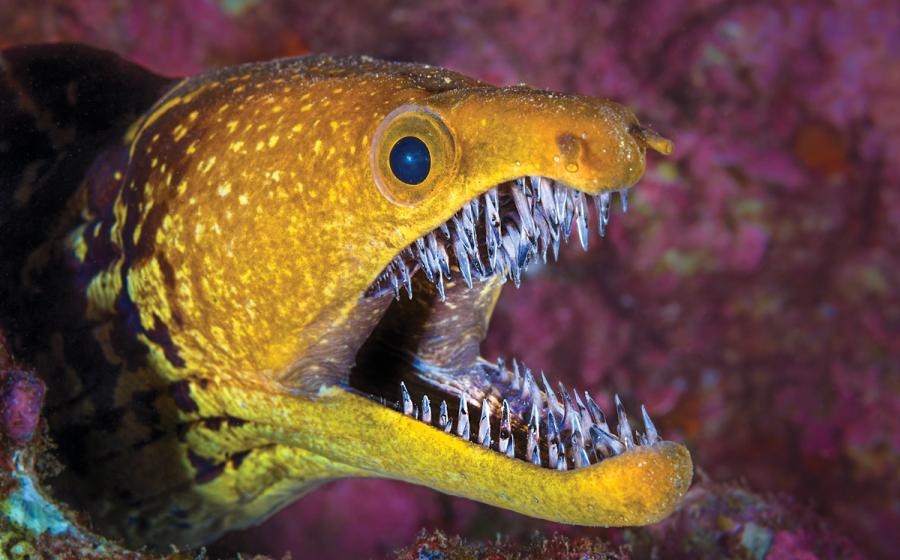How to Reduce Your Food’s Carbon Footprint on a Liveaboard Trip
Many divers judge liveaboards, at least in part, by the quantity and quality of food served on board. Desserts are my personal measuring stick. A liveaboard in the Galapagos once wowed me with a cake recreating Darwin’s Arch, the site of several fantastic dives that day. The chef aboard a Red Sea boat produced a selection of half a dozen choices every day of our itinerary— I tried two or three each time.
Then I started thinking about food that goes uneaten on dive boats and at resorts and restaurants. A third of all food produced in the world gets wasted, according to the Food and Agriculture Organization of the United Nations. That waste has a yearly global carbon footprint of about 3.3 billion tons, more than the total greenhouse gas emissions of most countries.
That one-third figure likely applies to food wasted by travelers too, says Juho Pesonen, a researcher at the University of Eastern Finland working with colleagues to create models of where and how tourists and tourism businesses waste food. Travel-related waste might be even higher, he says, because people tend to let go of sustainable behaviors while on vacation.
Perhaps we should do just the opposite. Production of uneaten food accounts for close to 30 percent of the world’s agricultural land. That represents 5.4 million square miles of lost natural ecosystems and the wildlife they support.
The energy and water required to store, refrigerate, transport and prepare food has a big effect on the natural world too. Uneaten food that ends up in landfills produces methane, a greenhouse gas more potent than carbon dioxide.
“By the time food gets to you as a guest, so many carbon emissions have gone into it that to waste it at that point really increases your footprint,” says O’Shannon Burns of EplerWood International, a sustainable tourism development firm.
The good news is that tourism is such a massive industry, even small changes, when applied broadly, can have big effects.
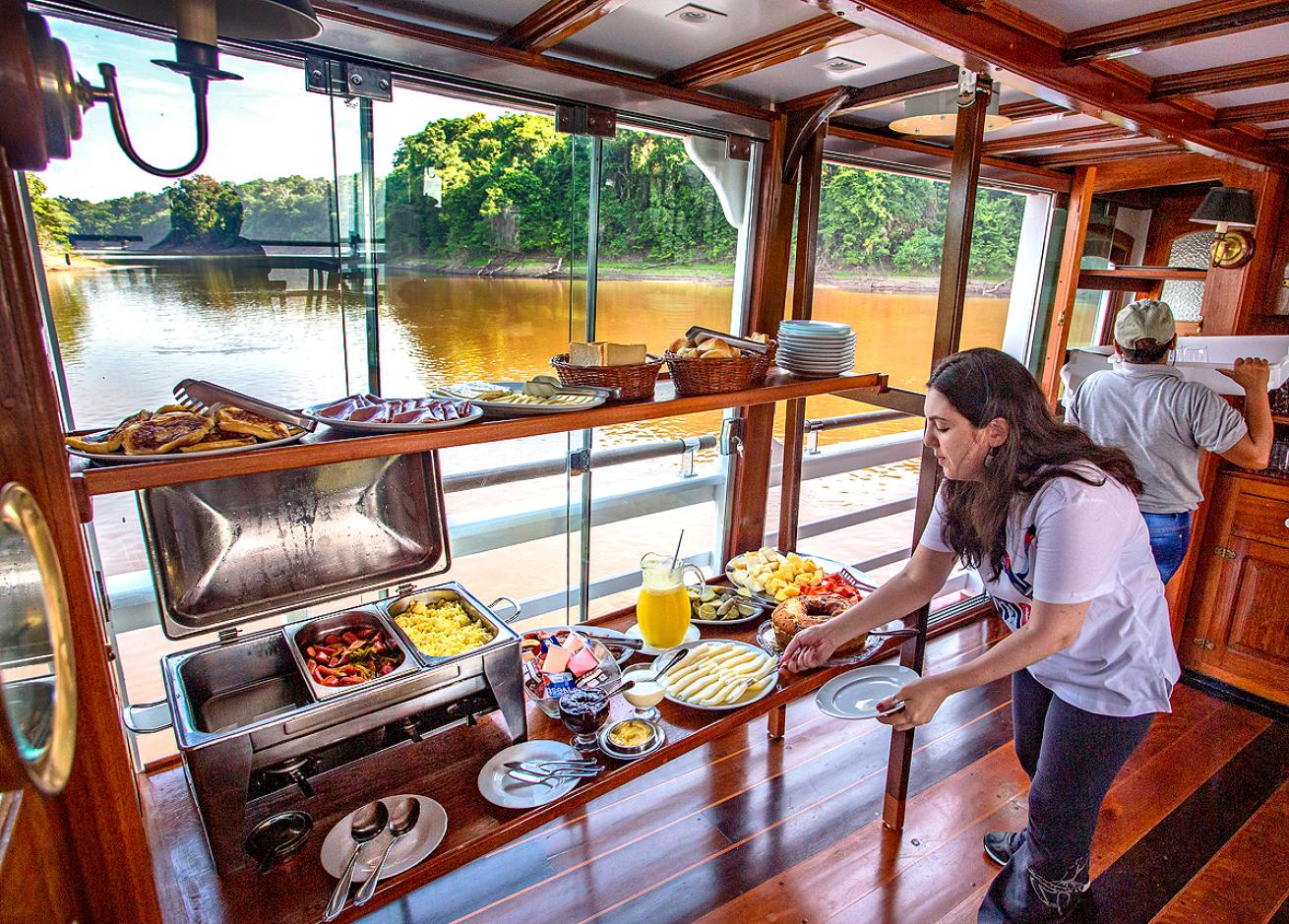
Courtesy Amazon Nature Tours/Daniel ForsterAmazon Nature Tours keeps food waste to a minimum by buying and preparing only what passengers aboard need.
WHAT OPERATORS ARE DOING
Amazon Nature Tours, which explores Brazil’s Rio Negro aboard the custom-built Tucano, keeps food waste to a minimum by simply not over-purchasing before a cruise. The staff monitors consumption and adjusts the quantity prepared accordingly throughout the trip.
Owner Mark Baker adds that if additional items are needed on a cruise, the land-based office buys and sends them to the vessel. If an item runs out during a meal, the chef simply makes more.
“Our entire mission is focused on protecting and preserving the unique biosphere in which we sail,” Baker says. “As many aspects of our sailings as possible are focused on sustainability, and food and food waste are no exception.”
Leftovers from our plates represent about a third of food waste in hospitality and tourism activities, says University of Queensland researcher Sara Dolnicar, and people leave the most food uneaten when dining at self-service buffets. In a study about food waste at a four-star resort, she found that simply reducing the size of buffet plates by 3 centimeters (about an inch) reduced waste by 20 percent.
Signs on tables inviting people to return as often as they want also reduced buffet waste. “People tend to feel embarrassed to go up multiple times, so they pile too much food on their plates the first time,” Dolnicar says. When diners are explicitly told to take small portions and return multiple times if they need to, they are more comfortable doing so.
Reducing food waste starts by knowing how much there is and where it comes from, Pesonen says. Iberostar Resorts, a hotel group with more than 100 properties worldwide, is testing Winnow, a technology that uses artificial intelligence to monitor food waste in kitchens. The company also started programs to compost leftover food on site, reducing the amount going into landfills. Some hotels donate excess food through partnerships with local community organizations.
A growing number of dive operators and hotels have guests select their meals each night for the following day, Burns says. “That way, if you’re out on a dive and won’t be at lunch, they won’t prepare food for that meal.” Plating food in advance rather than serving buffet-style reduces waste too (and is likely to become the norm post-COVID-19). Other options include revamping menus to use the same ingredients in multiple recipes, says Burns, and using fewer foods that don’t hold up well.
REDUCING PERSONAL FOOD WASTE TOPSIDE
Individual travelers can make a difference by changing their habits as well. Ask for half portions at restaurants, Dolnicar says, and if necessary, offer to pay full price. Share a meal with a fellow traveler, a great way to increase the camaraderie—just ask the kitchen to plate the two halves separately. Still have leftovers? Take them to your room if there’s a mini-fridge (bonus points for bringing a reusable container).
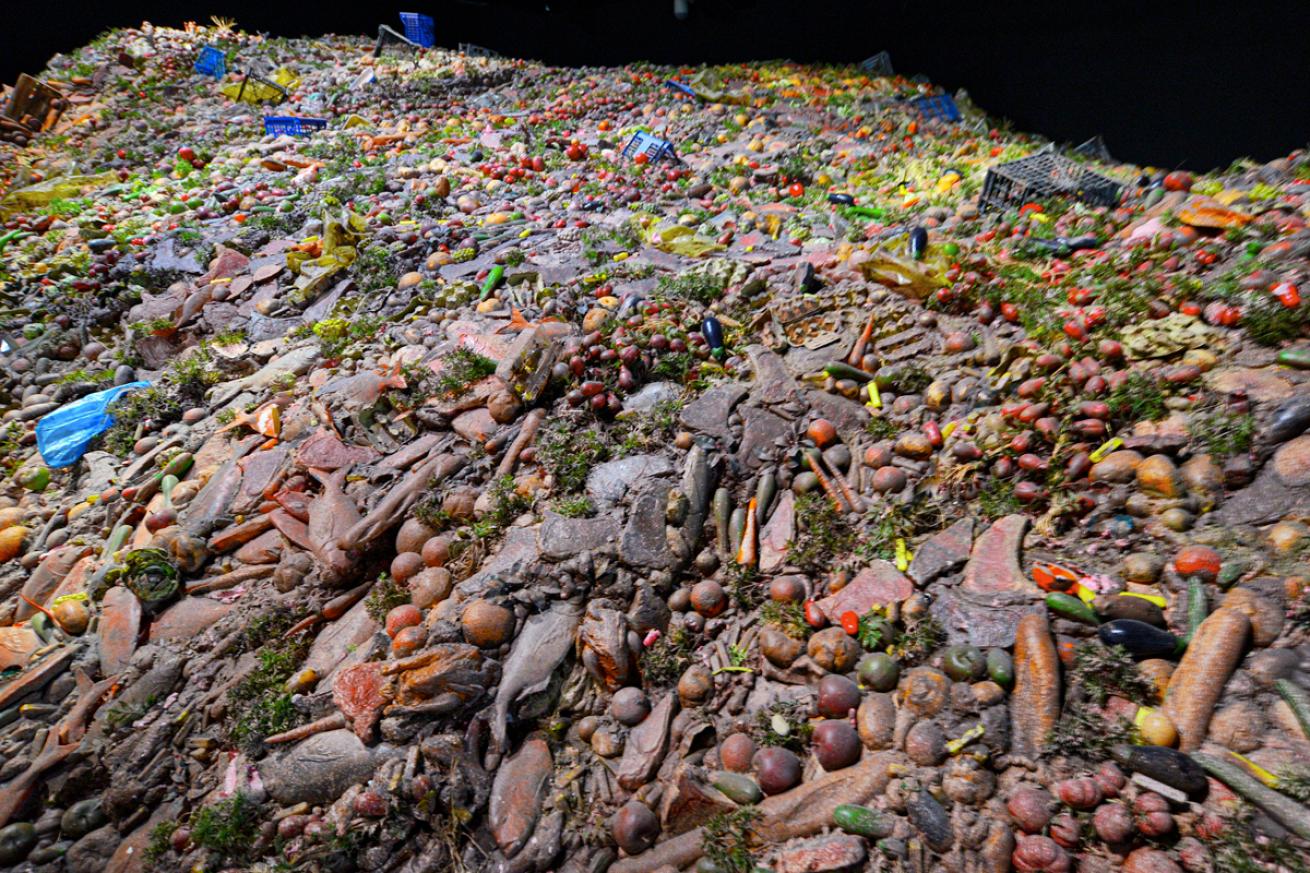
Shutterstock.com/Antonello MaraangiSharing food with a fellow traveler is a good way to make sure less of it gets discarded without being eaten.
“We all can pay attention to our own behavior and that of our group from the food-waste perspective,” says Pesonen. Buy only the groceries you need when staying at a rental. Be sure you have adequate storage so food doesn’t spoil. Prepare appropriately sized portions and incorporate leftovers into other dishes. Don’t take more than you really want at buffets.
And even as you otherwise let loose on vacation, make conscious efforts to prevent food waste.
HOW TO CHOOSE OPERATORS WORKING TO REDUCE FOOD WASTE
Experts say there is no existing certification program to help us find liveaboards or resorts that actively reduce food waste. But we can ask questions, says O’Shannon Burns, of EplerWood International. “A lot of the responsibility needs to be on operators themselves, but the reality is that travelers can push them to do better. Hotels and dive boats are in the service industry, and should be prepared to answer.”
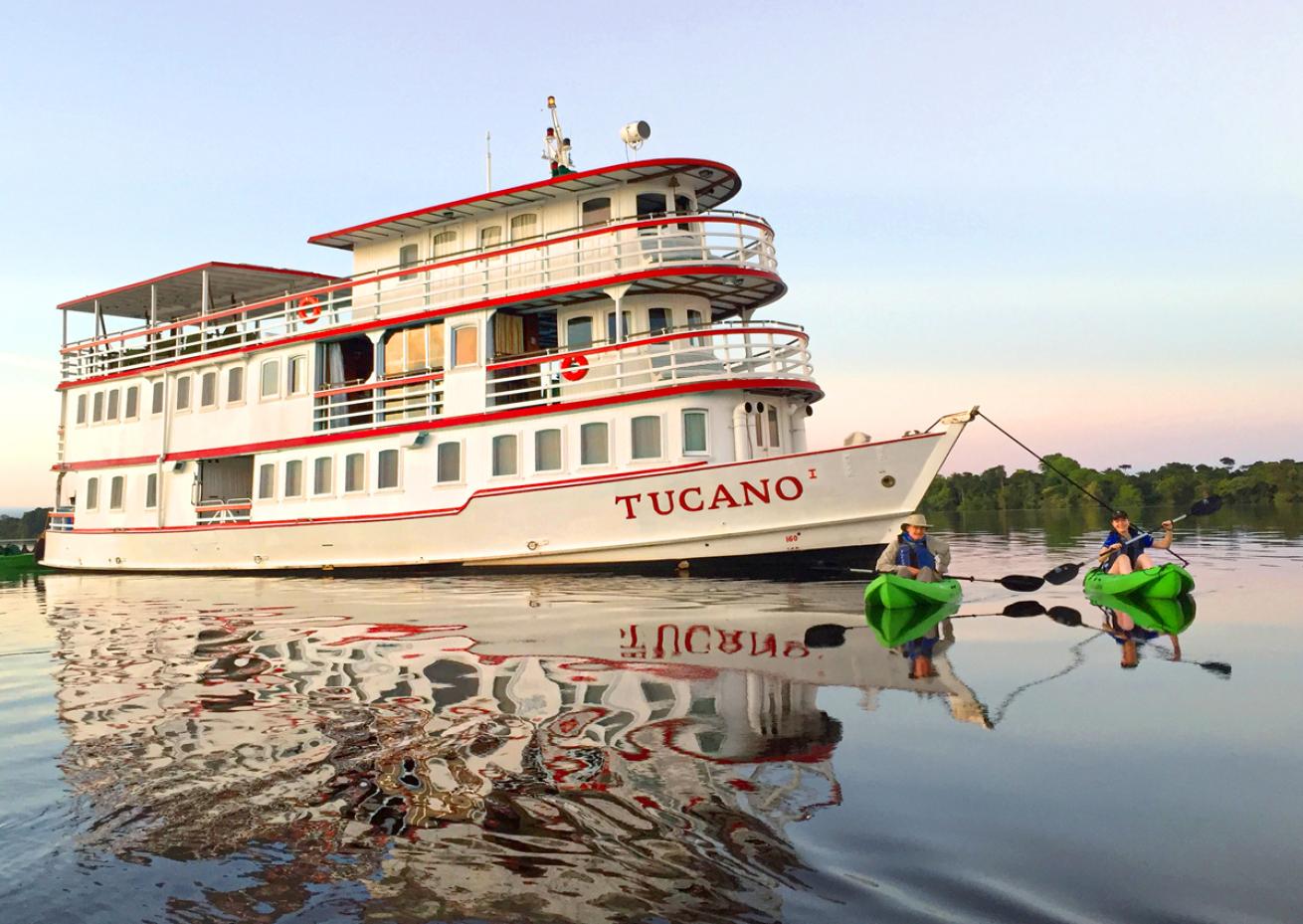
Courtesy Amazon Nature Tours/Mark BakerAmazon Nature Tours keeps food waste to a minimum by buying and preparing only what passengers aboard Tucano need.
When booking a trip, ask:
» Does the operator know how much food they waste and the sources of that waste?
» What general sustainable practices do they follow?
» What waste management practices do they follow (such as recycling and composting)?
» Is it possible to preorder meals and skip some meals?
“We can all insist that our tourism services have processes in place to reduce food waste,” says tourism researcher Juho Pesonen.
“Be curious about where your food comes from and what happens to it after you are finished with it.”

